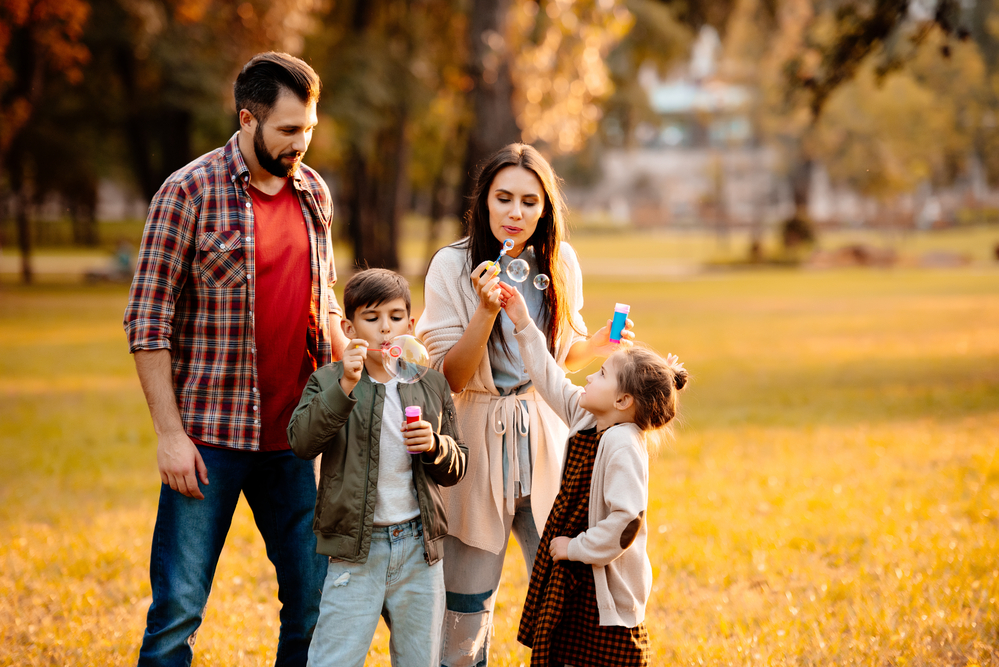For many couples, Valentine’s Day may just be another Hallmark Day, yet to others, it is a day that they can choose to make their partner feel particularly special and model to the children the attitudes and behaviours that they can adopt in their own adulthood. All special occasions (like Valentine’s Day, Mother’s Day, Father’s Day, Easter, Christmas and birthdays) put your relationship under the microscope and your children use these occasions, in particular, as learning opportunities to see you and your partner interacting.
Children have the eyes of a hawk. They seem to see and hear everything. They also sense any vibrational changes that you may have. As a divorced parent, your children will have sensed many of your emotional changes along your separation journey. They may have also witnessed the relationship between you and your child’s other parent degrade. For these reasons, it is more important that your next relationship demonstrates to the children what a good, healthy and safe relationship looks like.
WHY IS DEMONSTRATING A HEALTHY ADULT RELATIONSHIP IMPORTANT FOR CHILDREN?
I am sure you have heard people say “I married my mother” or “I married my father”. They don’t mean it literally, rather they are referring to marrying someone with the same qualities or characteristics as their parent. This is often because their parents were the predominant example of what a relationship is supposed to look like. As these children grow up, they naturally gravitate towards people that are like their parents and often replicate parts of their parents’ relationship.
Parents and partners, alike, need to be conscious about the relationship behaviours that they demonstrate in front of children because, one day, your child will copy what you have shown them.
Your relationship can show your child what a constructive relationship looks like. They will see positive behaviours like supportiveness, encouragement, understanding, tolerance, good communication. Your relationship can also help to break destructive cycles which may have been in your previous relationship with the child’s other parent. Destructive behaviours include substance abuse, aggression and domestic violence which can be minimised or eliminated by consciously modelling healthy relationships. You are also teaching your child what to look for in a healthy relationship and how to establish healthy boundaries within the relationship.
Children raised in a secure, stable home (be it with one or two parents, or one or more positive role models) are more likely to be better communicators, perform better at school and be more likeable people. What you do in your relationship ultimately demonstrates to your child what a relationship should look like and how it should feel.
WHAT DOES A HEALTHY RELATIONSHIP THAT LOOK LIKE?
You are in a mutually beneficial partnership. You actively try to meet your partner’s needs as well as meeting your own needs and allowing the space for your partner to try to meet your needs
You can effectively communicate with each other. Being able to express your needs, wants, desires and visions as well as your concerns, frustrations and sadness. This is an important life skill to learn how to adjust the way that you speak with your partner to get what you need and also understand the way that your partner communicates with you to best receive what they are trying to tell you.
You appreciate and accept differences and imperfections. No one is perfect. Instead of focusing on what your partner doesn’t have, you can focus on what they do really well. Learning to utilise to each other’s strengths helps to raise our perceptions of each other and helps us to feel more supported.
You respect, care and appreciate each other. Complacency can grow into expectations and assumptions. By continually being respectful, showing care for your partner and expressing appreciation makes you as an adult feel good and makes those around you feel good about themselves too.
Aligned beliefs, moral, ethics and spirituality. When a couple has similar or shared values, then working towards a common goal or future can be easier. Working out where you align and where you are different is all part of learning about each other, helps you to play to each other’s strengths and understanding the other’s perspective
You share common relationship goals that also support your individual goals. Planning and goal setting help to get you, your relationship and the family working in a common direction. Sharing your individual and collective goals, plans and visions are also important.
You can demonstrate constructive conflict resolution. You are able to talk through disagreements without it escalating into a disagreement or violence.
Have compatible financial values and goals. One of the biggest sources of contention in a relationship is often to do with the household finances, spending and future financial aspirations.
Are averse to coercion, control and contempt. Unfavourable qualities like coercion, control and contempt is one of the fastest ways to break a relationship or grow resentment. Be mindful of what you say, what you do and how you deliver your messages. These are qualities that ‘limit’ one of couple – if you experience these attributes in your relationship, it can be helpful to seek some individual and couple counselling.
WHAT DOES YOUR RELATIONSHIP SAY TO YOUR CHILDREN?
If you aren’t sure if you are modelling a healthy, safe and mutually beneficial relationship, you can ask yourself “would I be happy for my son or daughter to be in a relationship like mine?” and “would I be happy for my child’s partner to treat them the way my partner treats me?”
Relationships constantly need injections of effort and reflection about what is working well and what isn’t working well. Valentine’s Day is a great opportunity to assess your relationship and consider what your child is learning when they observe you and your partner interacting.
You may also like to read:









